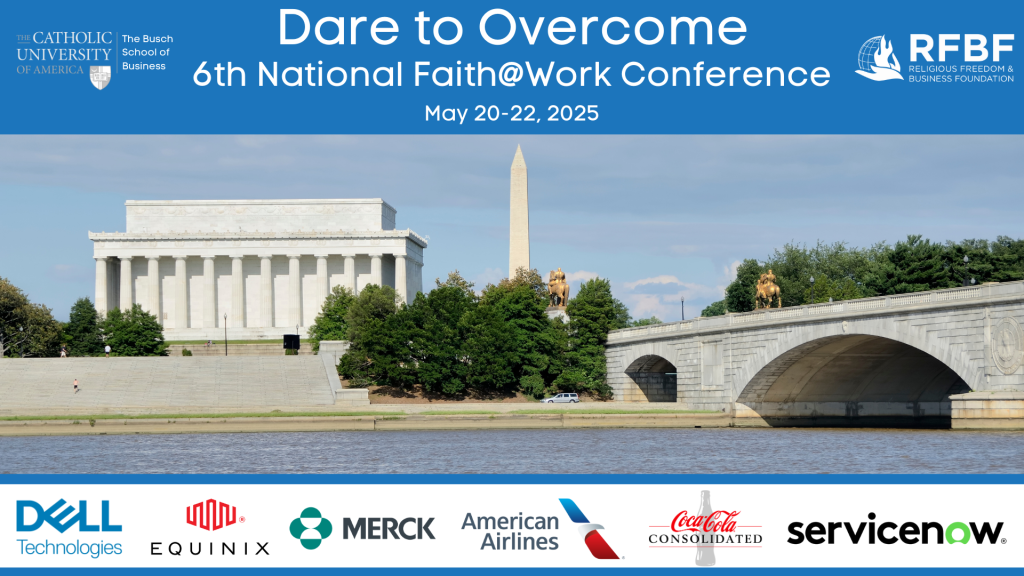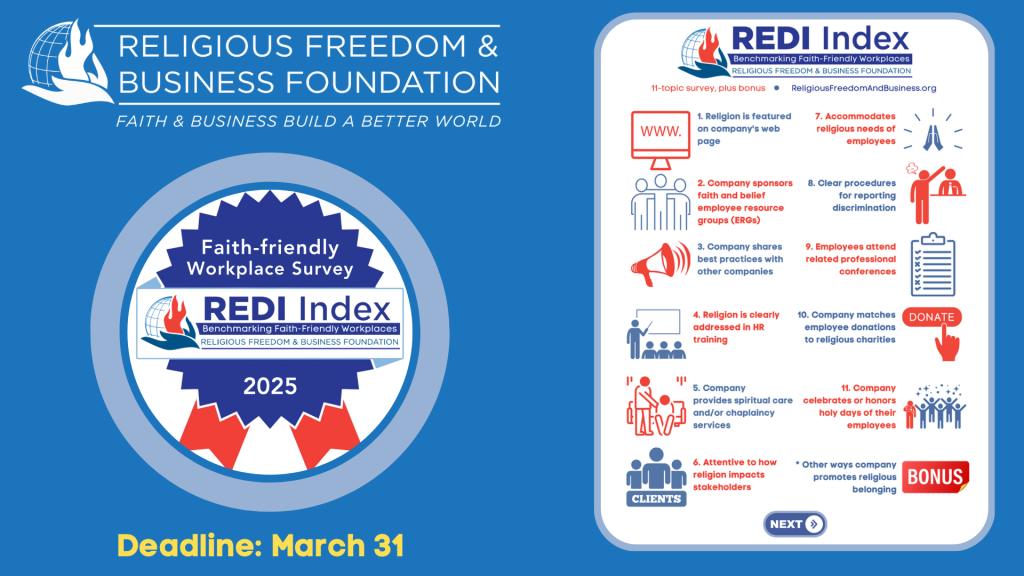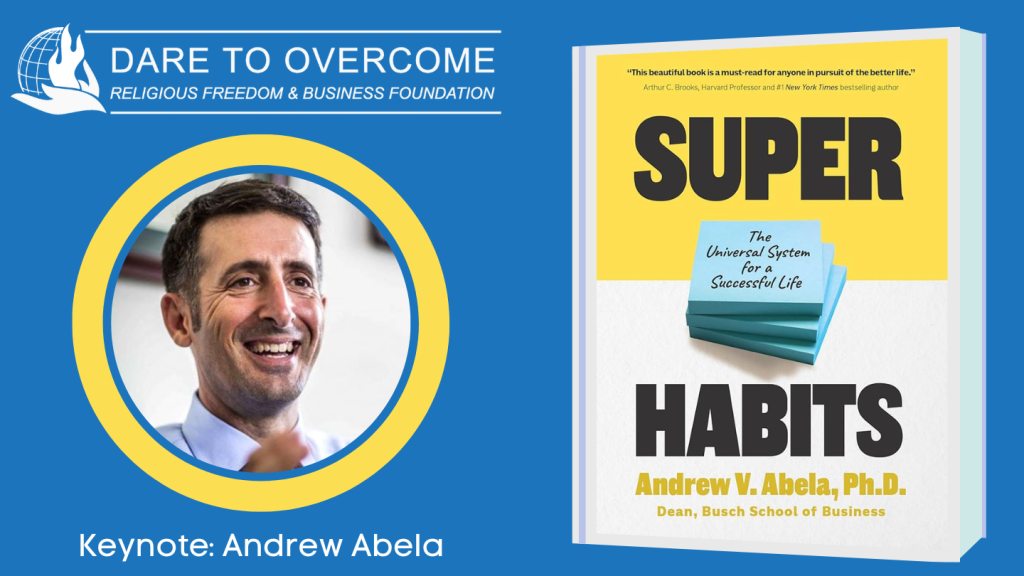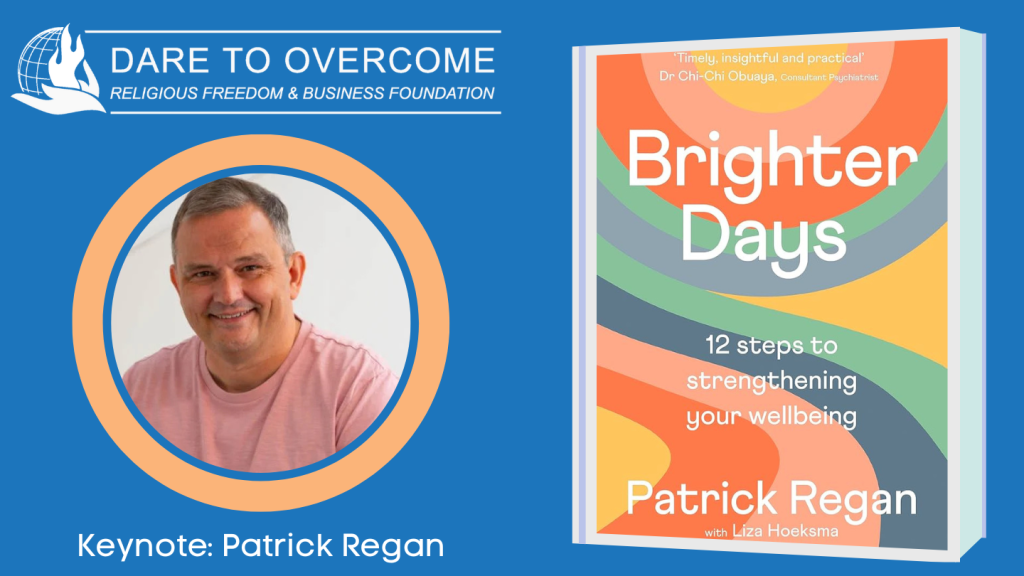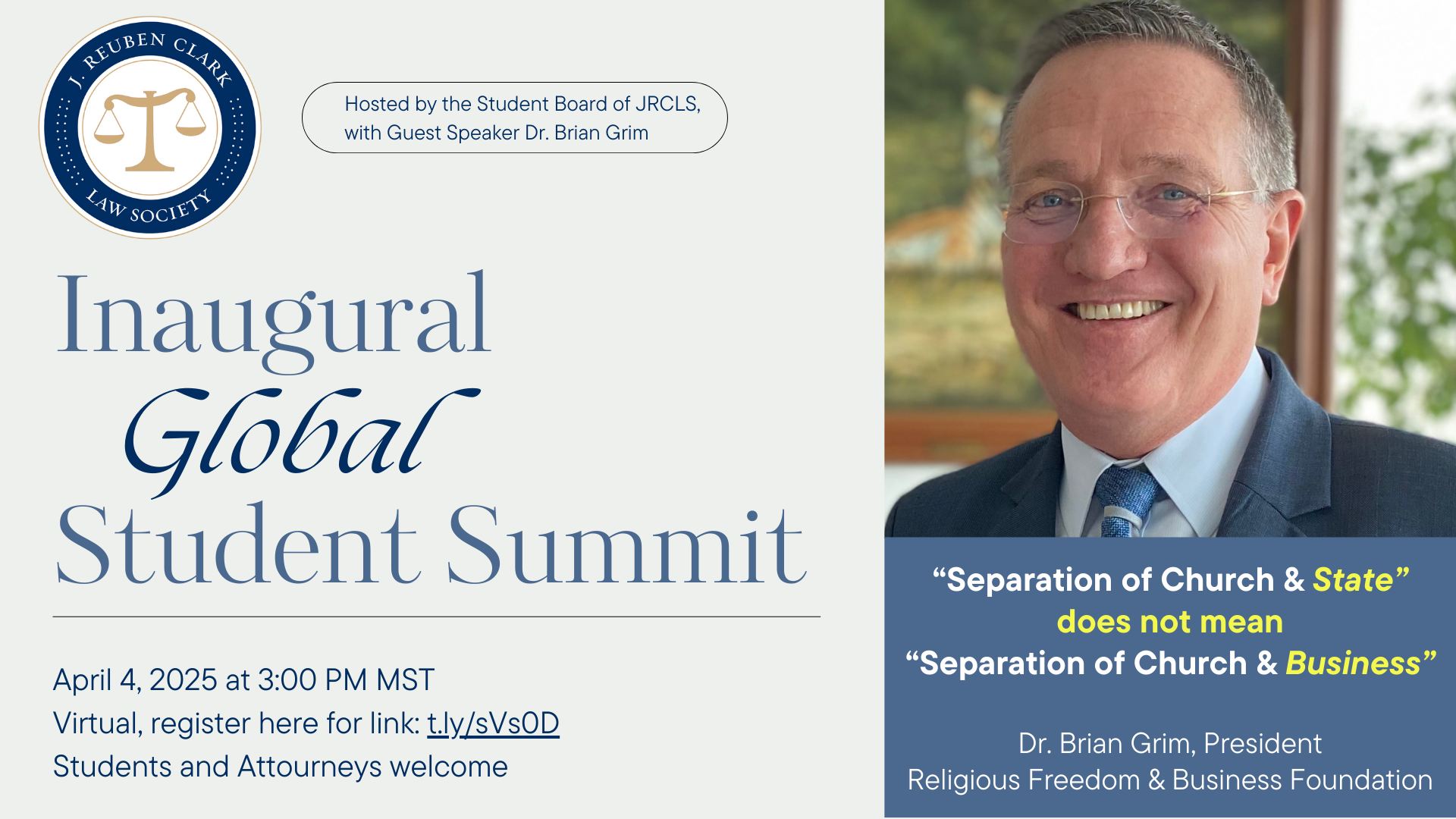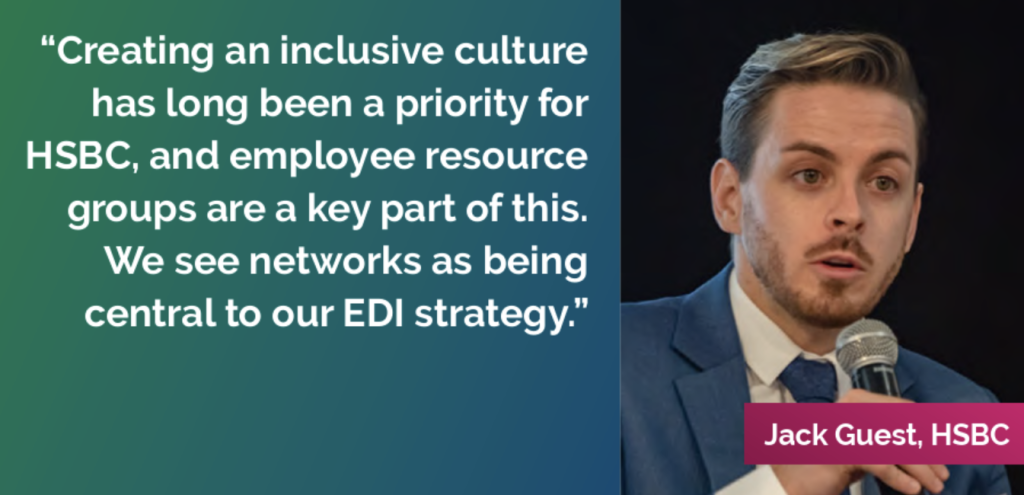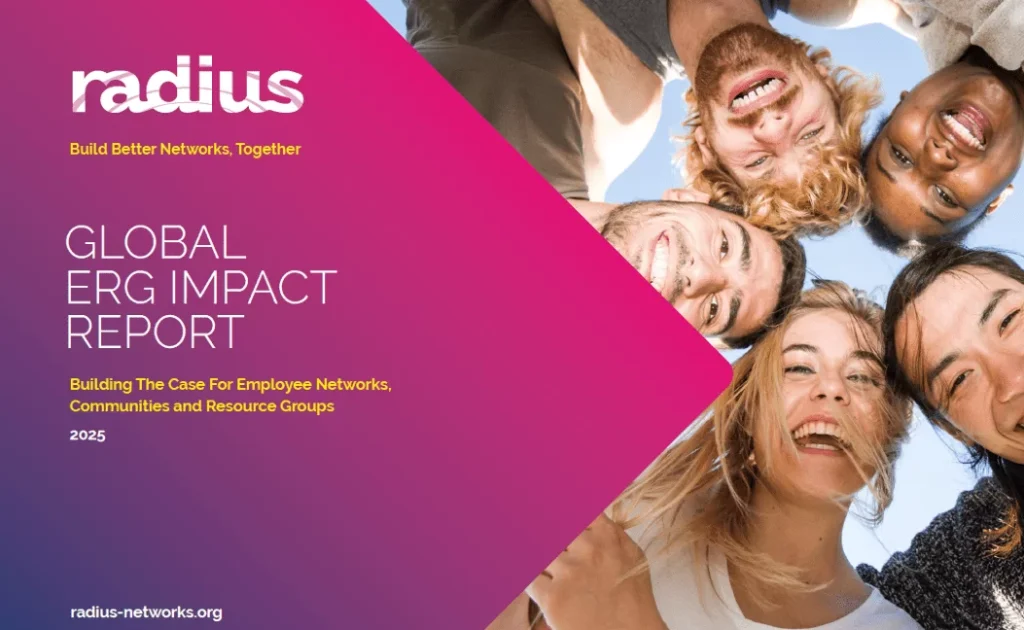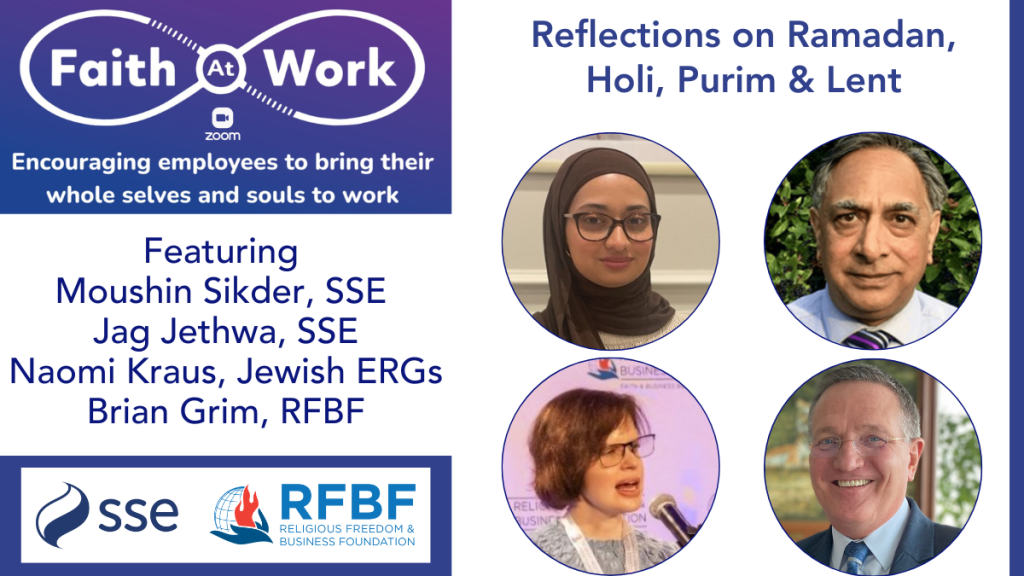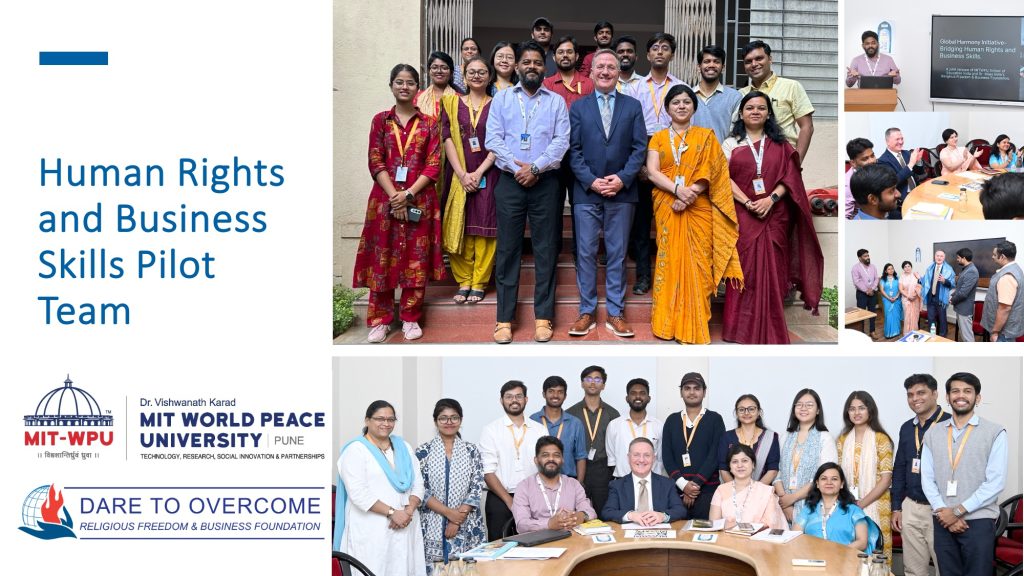
By Brian Grim
Greetings from Washington DC and from all my colleagues and partners at the Religious Freedom & Business Foundation.
On May 21, in Washington, in recognition of the success of the pilot Human Rights & Business Skills curriculum, which I will briefly describe in a moment, we will be conferring the Global Business & Interfaith Peace Gold Medal to MIT-World Peace University’s Executive President, Dr. Rahul V. Karad at our Fortune 500 Dare to overcome conference..
Dr. Rahul Karad is carrying on the noble and world-changing work of Revered Professor Dr. Vishwanath D. Karad, established the university’s guiding principle based on the teachings of India’s Noble Son Swami Vivekananda, “The union of science and spirituality will bring peace and harmony to mankind.”
I would also like to express my deepest gratitude to Professor Dr. R.M. Chitnis, MIT-WPU Vice Chancellor, for his enthusiastic support of this initiative, without which it would not have been possible. And the expert support of MIT World Peace University School of Education department head Dr Shalini Tonpe ensured our success. Thank you to both of you!
So … Last month, I had the tremendous opportunity to observe four of the 10 schools in the Pune region that participated in the “Human Rights & Business Skills” secondary school curriculum pilot. MIT World Peace University School of Education professors and student teachers supplemented the curriculum, which is based on the Universal Declaration of Human Rights, with parallel articles from the revered Indian Constitution along with business skills that reinforce and apply the human rights.
Before my visit to the schools, School of Education professors and student teachers kicked off the week with a roundtable demonstrating how they adapted the curriculum to the Indian context and piloted the curriculum.
The Roundtable conference began with Asst Prof Rahul Landge delivering a comprehensive report on the implementation of human rights curriculum, which was piloted across different schools of Pune city. The report provided valuable insights into curriculum’s execution, identified opportunities for growth, highlighted the challenges encountered, and included series of accountable recommendations for enhancing future efforts. This review played a crucial role in assessing the curriculum’s impact and its adaptability within diverse educational settings.
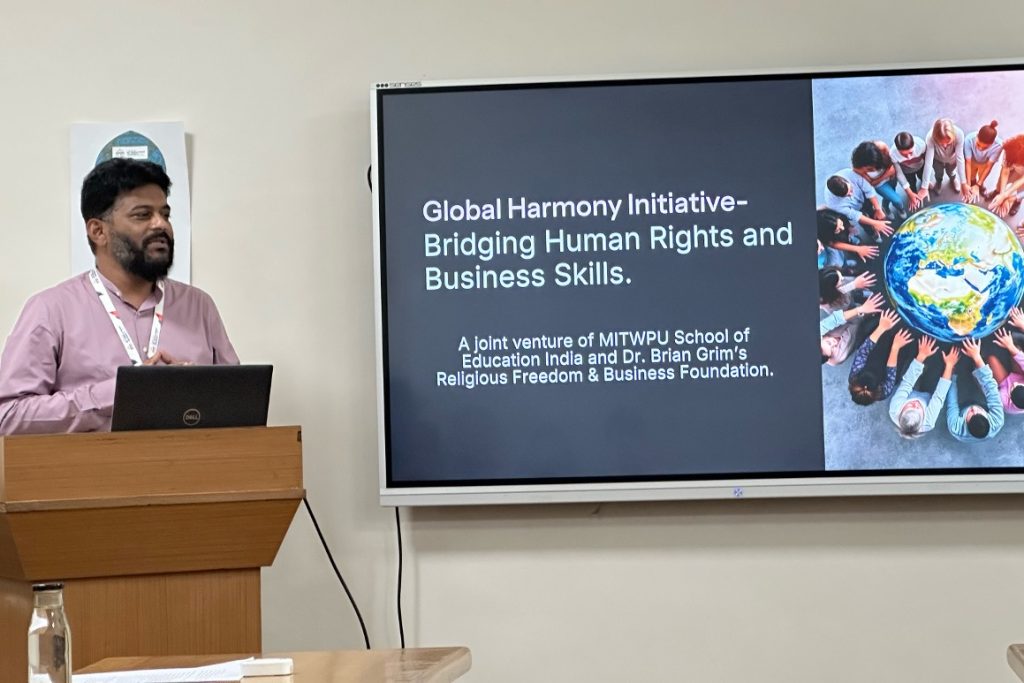
The human rights were very well received, and each of the 10 school principals were especially attracted to the practical business skills tied to higher values. Asst Prof Priya Kale, as seen in the photo, shows that while none of the schools has a business skills curriculum and only four are aware of such a curriculum, they all would like to implement such a curriculum in their schools.
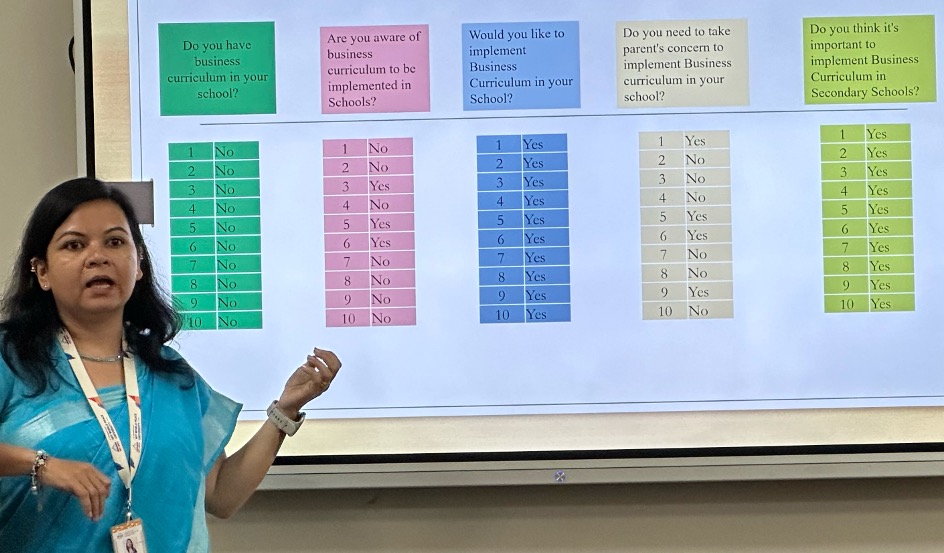
The team’s student teachers demonstrated as part of the roundtable four of the 10 human rights lessons that they piloted in the fall: Freedom of Religion, Protection from Child Labor, Right to Marriage and Family, and Freedom from Bullying.
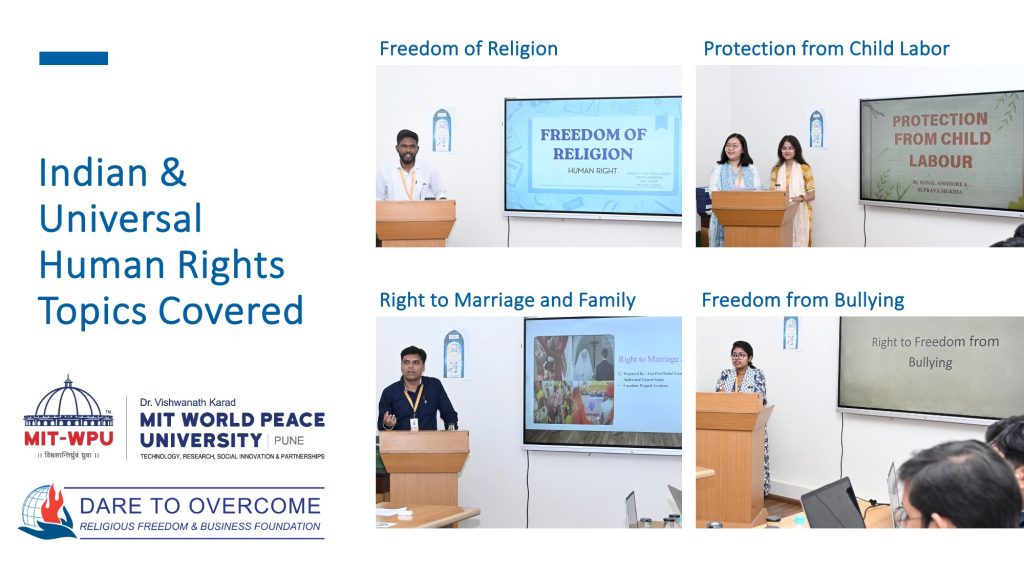
In the Schools
The class teacher at Anjuman Islam Peer Mohamed High School – Pune, an all-girls Muslim school (pictured below, bottom right), gave a ringing endorsement after the demonstration lesson, Protection from Child Labor. She and the chief school administrator invited us to implement the curriculum on an ongoing basis. I was particularly impressed to see how well students and teachers from different backgrounds — Muslim, Hindu and Christian — worked together joyfully and productively. It was a wonderful demonstration of India’s national motto Vasudhaiva Kutumbakam — “the world is one family”.
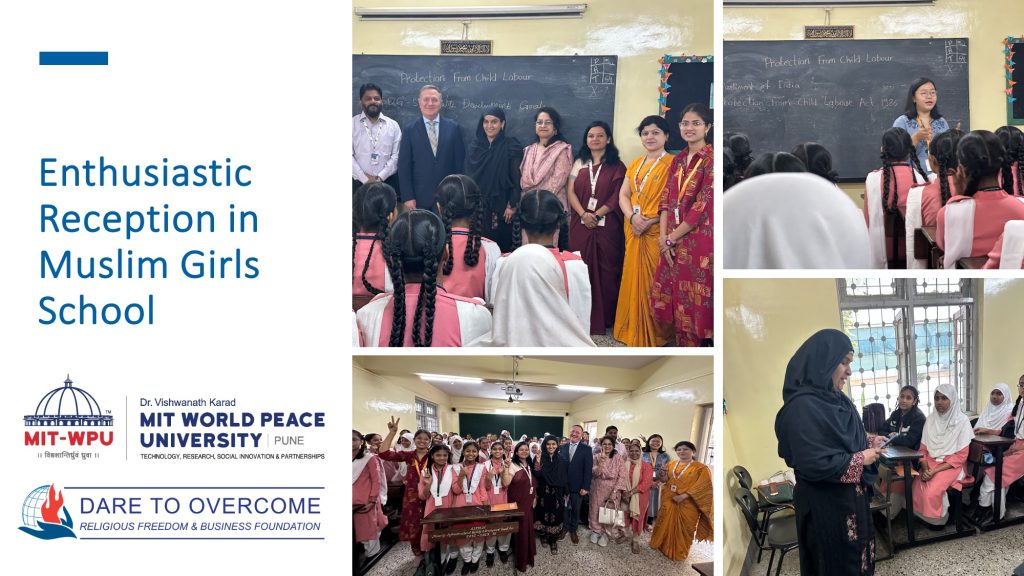
At a Pune school for underprivileged students, the Bharati Vidyapeet School, the pilot was on the fundamental human right to Marriage and Family. The class was executed effectively, with a variety of engaging activities designed to raise awareness about this right. Students actively participated in role-playing exercises, group discussions and case studies, which helped them explore marriage laws, family dynamics and personal freedoms.
A highlight was the performance of one of the 10 original songs written by one of the Hindu student teachers. He partnered with a Christian student teacher (both pictured) to write the songs to go with each of the 10 lessons. 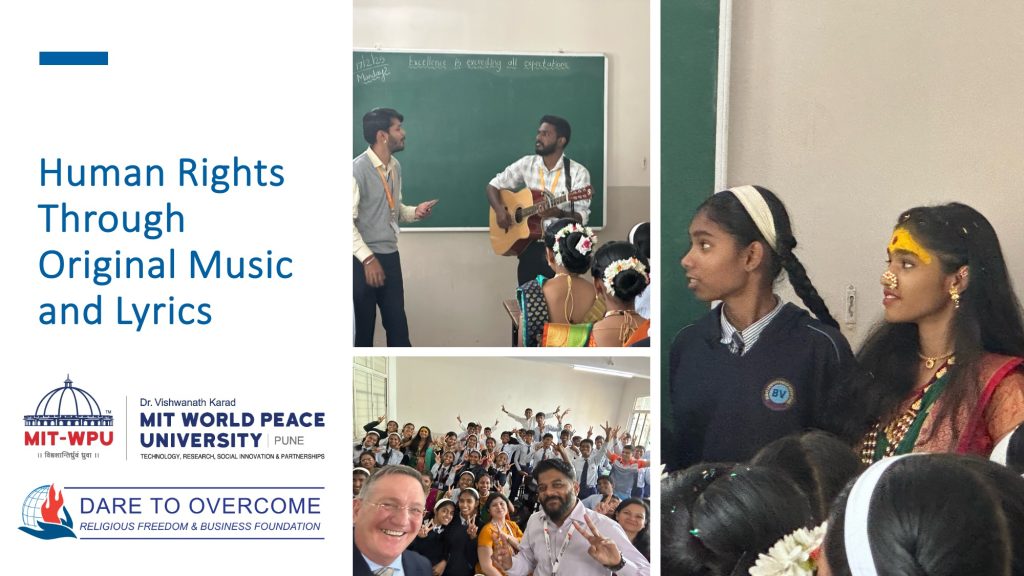
At a prep school attached to MIT WPU, the pilot class on Religious Freedom was animated through “gamification” – using games and competition to motivate learning. In one game, teams competed to see who could find the most similarities between India’s multiple religions. My minor but really fun part was to come on stage and hand out the awards.
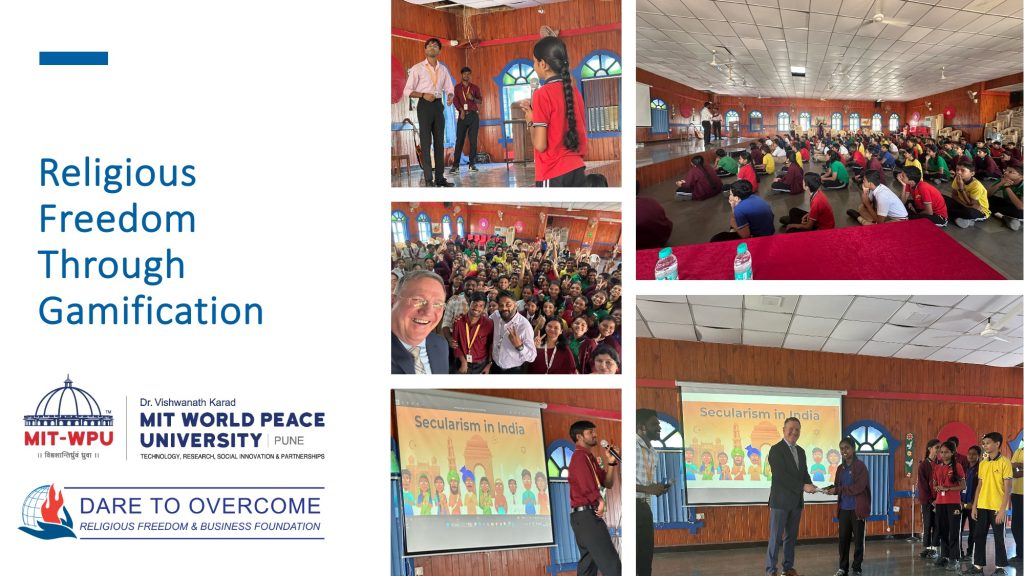
The final demonstration pilot was at a tutoring center giving evening classes for underprivileged students. The center is an act of love by a husband and wife team who offer daily coaching classes on English and math as well as other subjects as needed. The lesson was one that hits close to home for these students: Freedom from Bullying.
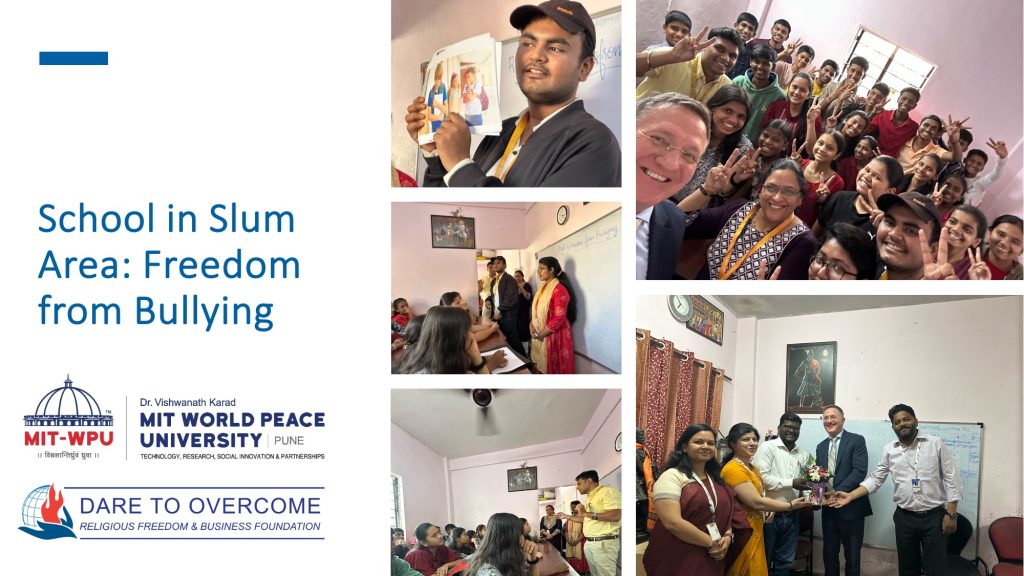
The Impact and Next Steps
Comments from students ranged from, “I didn’t realize we had universal rights at birth,” to coming up for strategies on how to combat discrimination.
We are working towards sustainability and expansion of the initiative across India and worldwide through Corporate Social Responsibility (CSR) funding. Indian companies must spend a minimum of 2% of their average net profit over the preceding three years on CSR activities.
The results were overwhelmingly positive, and with Corporate Social Responsibility funding, we can see the real potential to sustain and expand this initiative not only across India and but throughout the world.
I congratulate the MIT Would Peace University for developing the world’s first business skills curriculum that reinforces and applies human rights. This is truly a recipe for peace and prosperity. Thank you!
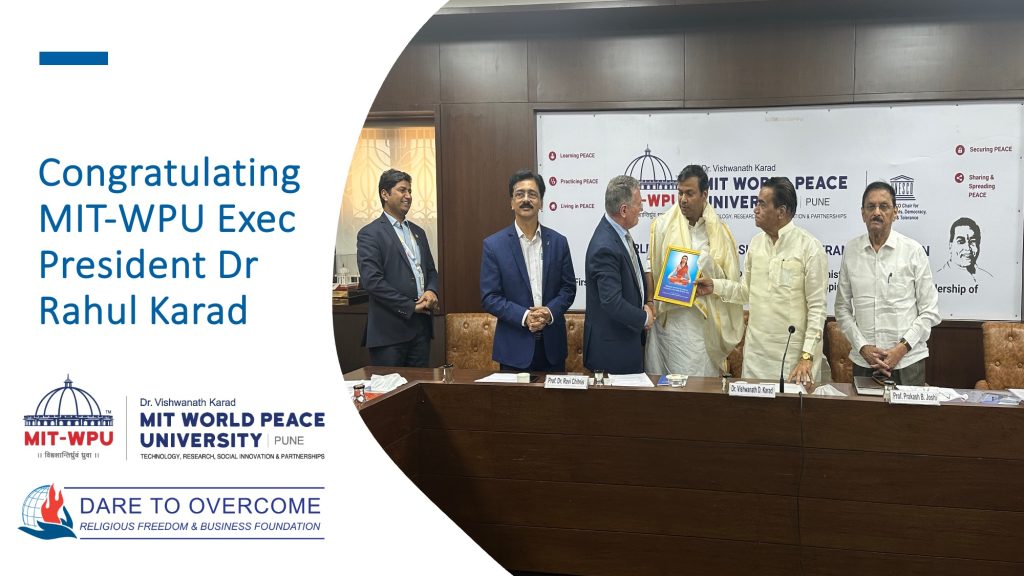
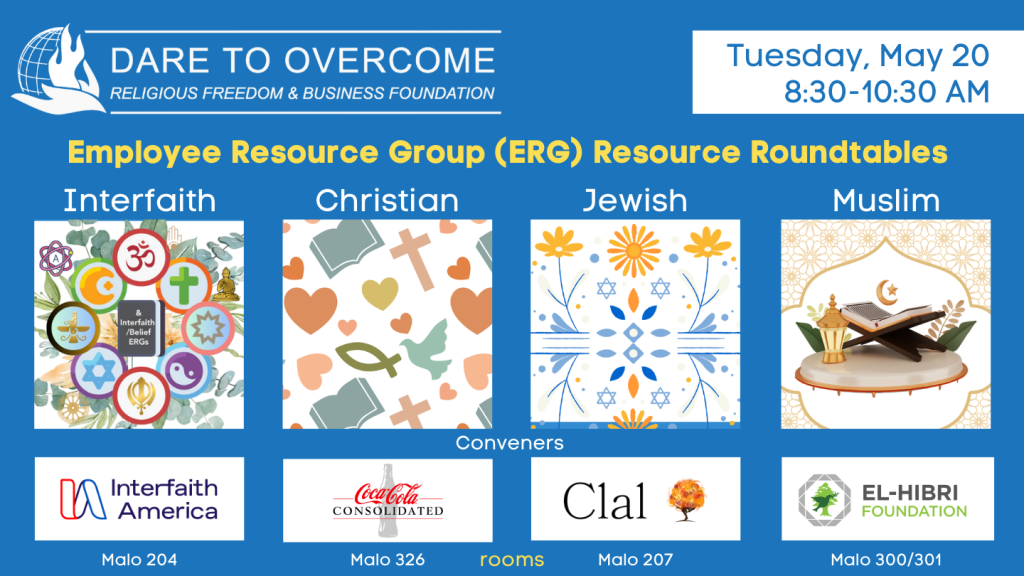 UPDATE: #dare2overcome – 6th National Fortune 500 Faith@Work Summit
UPDATE: #dare2overcome – 6th National Fortune 500 Faith@Work Summit
